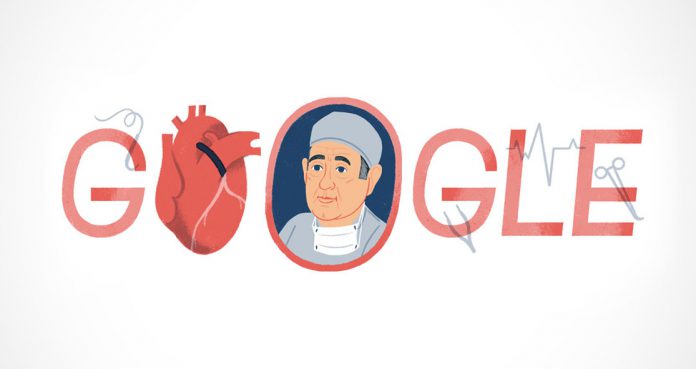You may probably not recognize the name Dr. René Favaloro, but it is worth knowing what he did to save countless lives in the past half-century. The Argentinian cardiac surgeon pioneered coronary artery bypass surgery (CABG).
In the United States, more than 16 million people suffer from coronary heart disease (CHD), a condition that develops because of plaque accumulation in the arteries that supply blood to the heart. CABG is a procedure that has saved innumerable people with CHD in the last half-century.
On Friday, Google has paid tribute to Dr. Favaloro with a Doodle on what would have been his 96th birthday.
In the 1960s, Dr. Favaloro started to explore the potential benefits of CABG to treat CHD. The procedure includes taking the arteries or veins from other parts of the body, which are called grafts, and using them to reroute blood flow around a clogged artery that supply blood to the heart.
The cardiac surgeon’s focus was on using the saphenous vein, which is situated in the leg, in CABG.
In 1967, he performed the first successful CABG on a 51-year-old woman.
Dr. Favaloro was born in 1923 in La Plata, Argentina. He spent first 12 years by practicing medicine, seeking to improve public health. He also trained nurses and set up a blood bank. Later, he built an operating room.
The surgeon’s groundbreaking work began after he traveled to the United States in 1962 and started practicing at Cleveland Clinic. During practice, he was drawn to the work of Dr. Mason Sones, an American physician, who did pioneering work in cardiac catheterization. After analyzing hundreds of Dr. Sones’ images of coronary angiograms, Dr. Favaloro was convinced that CABG could be an effective treatment for CHD. And he was absolutely right. The procedure is now performed on countless patients each year, which help reduce the risk of heart attack.






















